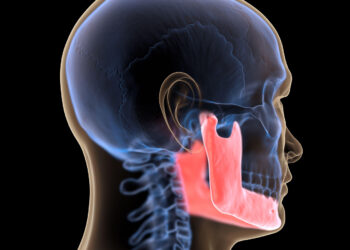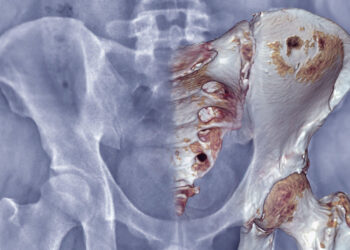The Infectious Diseases Society of America’s (IDSA’s) updated guidelines for management and treatment of complicated urinary tract infections (UTIs) include a streamlined classification and new advice on antibiotics.
The guidelines, published on the IDSA website, specifically address complicated UTIs (cUTIs) and expand recommendations for men, both of which had not been emphasized in the existing IDSA guidelines on UTIs (last updated in 2010).
“IDSA’s new guidelines are intended to support clinicians from many different disciplines with the latest scientific knowledge on how to manage complicated UTIs,” said lead author Barbara Trautner, MD, co-chief of the Infectious Diseases Division at Washington University in St. Louis, in an IDSA press release announcing the guidelines.
Since 2010, many antimicrobials have emerged for cUTIs, which are now defined as an infection beyond the bladder in women or men, including pyelonephritis, febrile or bacteremic UTIs, catheter-associated UTIs, and prostatitis. Although prostatitis is now part of the definition of cUTIs, management is not specifically addressed in the new guidelines, the authors wrote.
Uncomplicated UTIs are defined in the new guidelines as infections confined to the bladder in afebrile women or men.
“The guidelines provide a welcome update and clarity to treating a commonly encountered infection,” said Neil Skolnik, MD, professor of family and community medicine at the Sidney Kimmel Medical College of Thomas Jefferson University, Philadelphia, in an interview.
“This is one of the few guidelines that I have seen where I don’t actually think there will be barriers to implementation,” he said.
Go Early, Then Easy, on Oral Antibiotics
Notably, the recommendations suggest algorithms for the use of antibiotics, including a four-step process to assess illness severity, resistance risk factors, patient-specific considerations, and, for septic patients, consideration of local antibiotic susceptibility (the antibiogram).
For patients who started on parenteral therapy but are improving and able to take oral medication, switching to oral antibiotics for the remainder of the treatment period is recommended if an effective oral option is available, according to the guidelines. An earlier switch to oral treatment would reduce costs and the risk for catheter-related adverse events, the authors noted.
The guidelines also recommend a relatively short duration of antibiotic use for patients with uncomplicated UTIs who are improving: either 5-7 days of a fluoroquinolone or 7 days of a non-fluoroquinolone antibiotic.
Simple Updates to Treat Complicated Cases
“I was thrilled to see the updated guidance from IDSA, as they represent the most important and credible organization that gives guideline-based recommendations on infectious diseases, of which UTI is an important one,” Skolnik said.
“I was not surprised that pyelonephritis was reclassified from uncomplicated to complicated UTI,” Skolnik told Medscape Medical News. “In fact, I was surprised that it was considered uncomplicated in the previous guidelines,” he noted.
An important point about the updated guidelines is the emphasis on individualized treatment of complicated UTIs, recognizing that treatment depends on the severity of illness, risk factors for having resistant uropathogens, patient-specific considerations, and the local antibiogram, Skolnik said.
For example, the recommendation for patients with sepsis resulting from a UTI “places a higher value on providing early, appropriate empiric antibiotic therapy to prevent mortality while deferring stewardship considerations to definitive therapy,” Skolnik noted. “For patients who are less severely ill, antibiotic stewardship becomes more important,” he said.
Skolnik said he was pleased to see the inclusion of “good old trimethoprim-sulfamethoxazole” as a preferred oral agent for patients with complicated UTIs without sepsis who do not require intravenous therapy.
“I was also happy to see that fluoroquinolones are still first line in this population, and amoxicillin-clavulanate or oral cephalosporins still are recommended as reliable alternative agents,” Skolnik told Medscape Medical News. These antibiotics are widely used in primary care, he added. However, for complicated UTIs, “it is particularly helpful to have duration of antibiotic treatment clarified as 7 days total duration, rather than a longer course, as many clinicians currently treat for 10-14 days,” he noted.
The new guidelines were developed by a panel of experts, including physicians and pharmacists, with review by multiple medical organizations, including the Society of Infectious Diseases Pharmacists, American Academy of Family Physicians, Society of Hospital Medicine, American Urological Association, American Society for Microbiology, Society for Academic Emergency Medicine, Association of Medical Microbiology and Infectious Disease Canada, and European Society of Clinical Microbiology and Infectious Diseases.
Skolnik disclosed serving on advisory boards and as a consultant for AstraZeneca, Teva, Eli Lilly and Company, Sanofi, Sanofi Pasteur, GSK, Abbot, and Novo Nordisk. Skolnik also disclosed serving as a speaker for AstraZeneca, Eli Lilly and Company, GSK, Teva, Heartland, and Takeda, and receiving research support from AstraZeneca, GSK, Novo Nordisk, and Novartis.
Source link : https://www.medscape.com/viewarticle/idsa-updates-guidelines-complicated-utis-2025a1000j3l?src=rss
Author :
Publish date : 2025-07-18 11:05:00
Copyright for syndicated content belongs to the linked Source.







